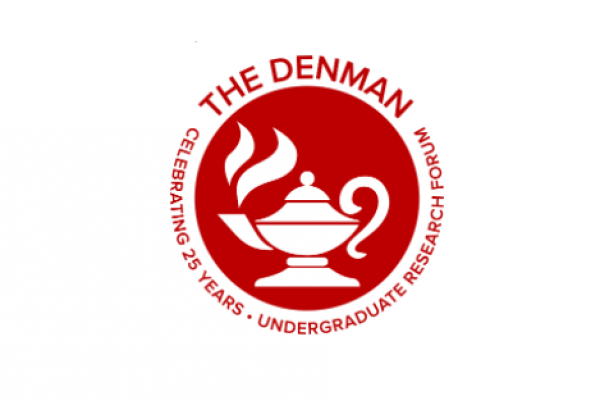Two SPPO Majors Among the Winners of OSU's 26th Annual Denman Undergraduate Research Forum

The Department of Spanish and Portuguese recently had several students participate in OSU’s virtual 26th Annual Denman Undergraduate Research Forum! There were over 180 students presenting in 21 categories and recognized 63 winners. We are pleased to announce that two of our students were among the forum's winners. Congratulations to Kendall LoCascio and Brandon D'Souza for an outstanding job!

Kendall LoCascio, a double major in Psychology and Spanish won first place for her project, "How early should we teach pronunciation? Sound category formation in beginner and intermediate Spanish learners."
In her project, Kendall explores the impact of teaching pronunciation to second language (L2) learners of Spanish. She tests the hypothesis that earlier exposure to phonetics instruction for beginners will result in greater improvement, due to their sound category malleability, as opposed to more advanced learners, whose L2 categories are more solidified and may show more resistance. She compares two groups of our undergraduate students: one from "Spanish Pronunciation" (SPAN 3404) and another from one section of Spanish 1103, a basic Spanish course, where explicit pronunciation instruction was included as part of the usual curriculum. Both groups completed a module called See Your Speech, where students had to record themselves reading several words in Spanish. By acoustically analyzing the recordings, Kendall was able to find that students in SPAN 1103 (beginners) presented a greater reduction in their aspiration of Spanish /p, t, k/ compared to those in SPAN 3404 (intermediates). Kendall's finding indicates a difference in L2 category formation: more advanced learners show less change due to their more solidified system, while beginners' less solid categories are more prone to change due to instruction. Kendall concludes that this evidence supports a Spanish curriculum that includes pronunciation teaching early on. Kendall's study is part of Our Voices/Nuestras Voces, a collaborative project led by Dr. Rebeka Campos-Astorkiza that focuses on second language acquisition of pronunciation.

Brandon D'Souza, a double major in Biology and Spanish with a minor in Film Studies, won second place for his project, "Interactive Technologies and Indigenous Art: Exploring the Use of Immersive Resources to Increase Audience Engagement with Ceramic Pieces in the Andean and Amazonian Indigenous Art and Cultural Artifacts Collection (AAAC) at The Ohio State University."
Brandon's project draws on his experience as curator of the Andean and Amazonian Indigenous Art and Cultural Artifacts Collection at OSU working with Dr. Michelle Wibbelsman as well as coursework in SPAN 4515 and SPAN 4565H and raises a central research question regarding the extent to which digital interactive resources are able to increase audience engagement with the collection pieces, thereby increasing knowledge of and appreciation for indigenous forms of expression while providing insight into key Andean and Amazonian concepts and practices. Guided by this research question and with support from Dr. Jeremy Patterson, Graphics Researcher at the OSU Advanced Computing Center for the Arts and Design (ACCAD), Brandon developed a digital multisensory resource focused on Canelos Quichua pottery. Given the fragile nature of these pieces and the inability of audiences to handle the actual physical ceramics, Brandon's digital program attempts to overcome these barriers to interaction and invites users to manipulate a digital 3D model while they make decisions about colors and patterns to create a personal version of a ceramic vessel. Textual information, short video clips, and reflection prompts lead users to additional information about the pottery traditions and underlying cultural concepts of the Canelos Quichua community. The program serves as a promising educational tool that helps increase user engagement with collections of indigenous art while incorporating aspects of indigenous ideology into the resource itself.
If you are interested in presenting at the Denman Forum in the future, we encourage you to reach out to any of the professors in the Department of Spanish and Portuguese. Our professors would be happy to help you with your research!
